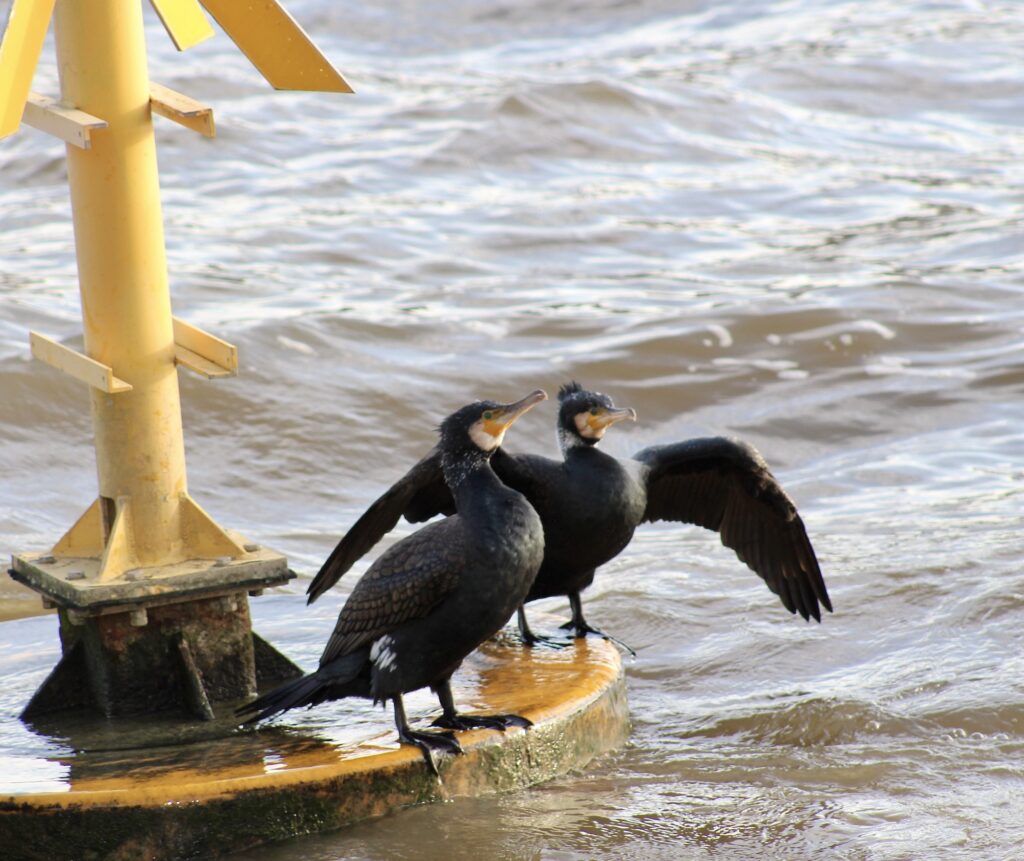
Pairs of birds, sometimes couples, sometimes parent and fledgling, sometimes siblings, photographed in Victoria Tower Gardens and St. James’s Park over the last five years. Highlighted in blue are links to details of each species.
Cormorants can often be seen skimming low over Thames waters, and from time to time seen standing on rocks, piers and even the yellow Palace of Westminster markers, stretching out their wings.
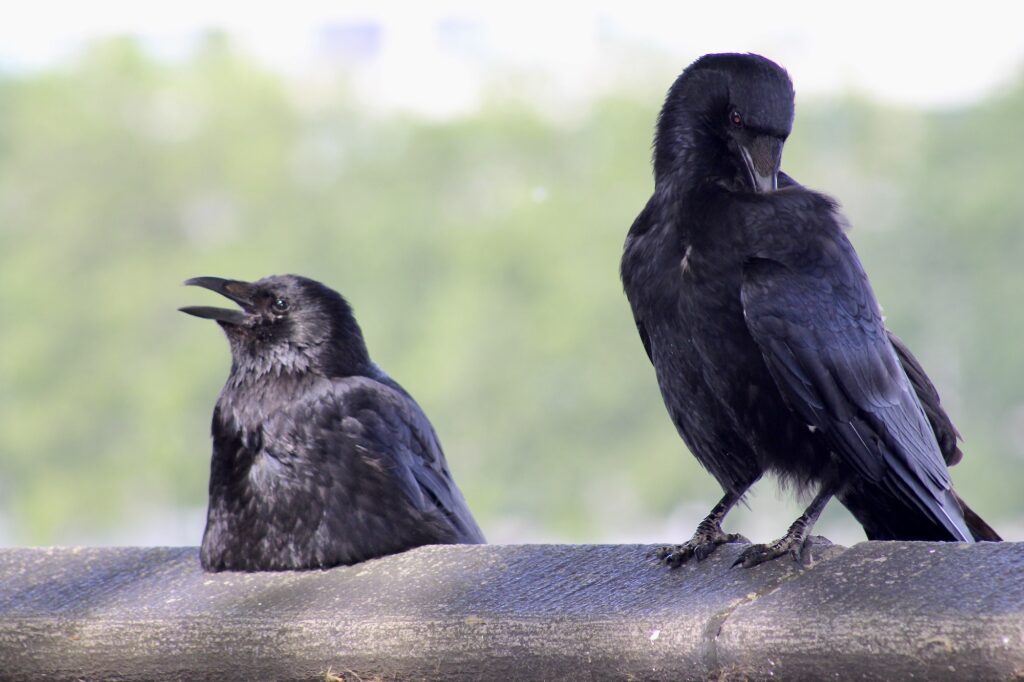
Crows are part of the Corvid family . Bright, intelligent birds they are good parents. On one occasion I saw a pair watch over their dead offspring, lying wings outstretched on the foreshore, keeping a gull and cormorant at bay.
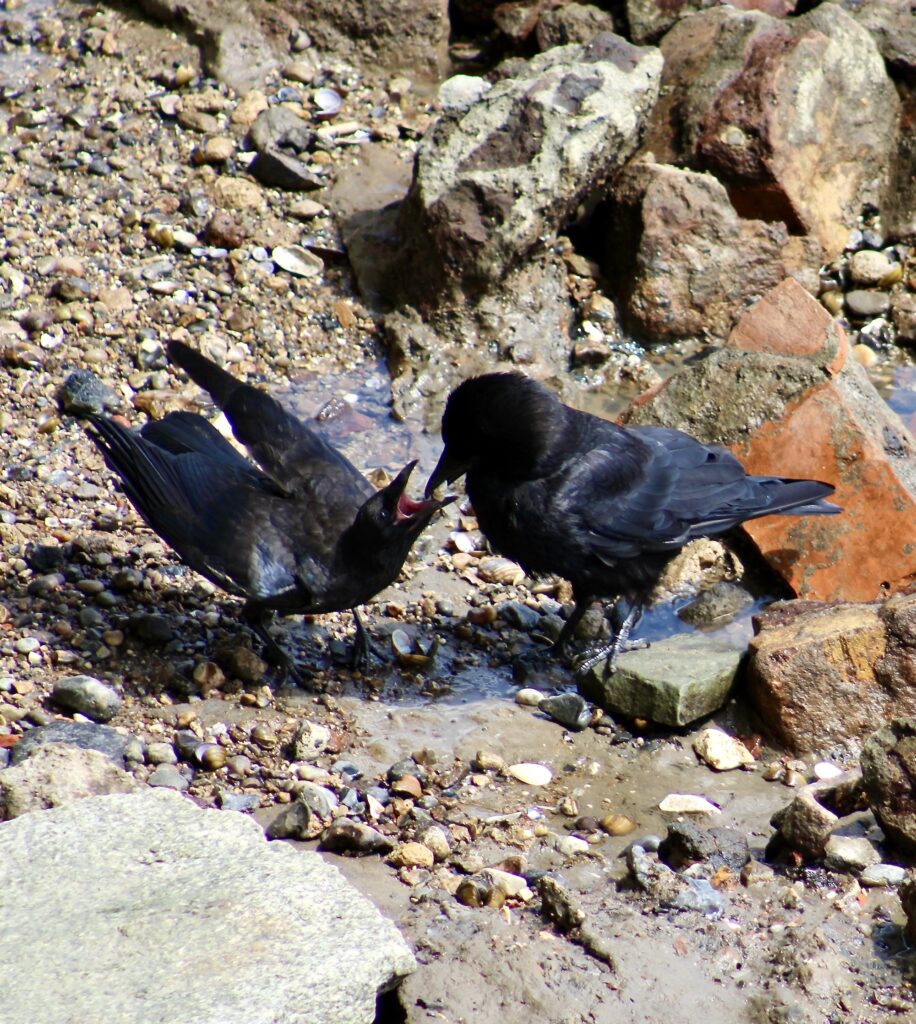
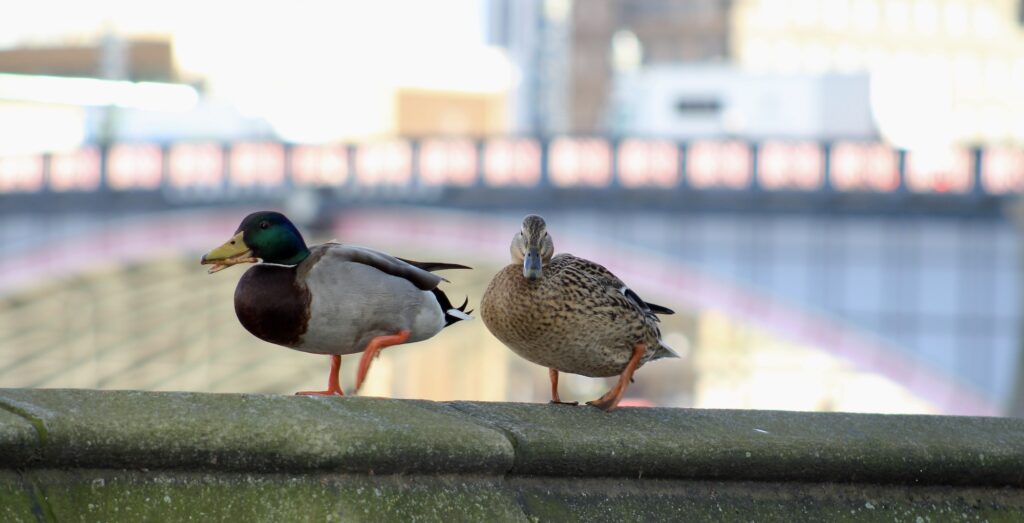
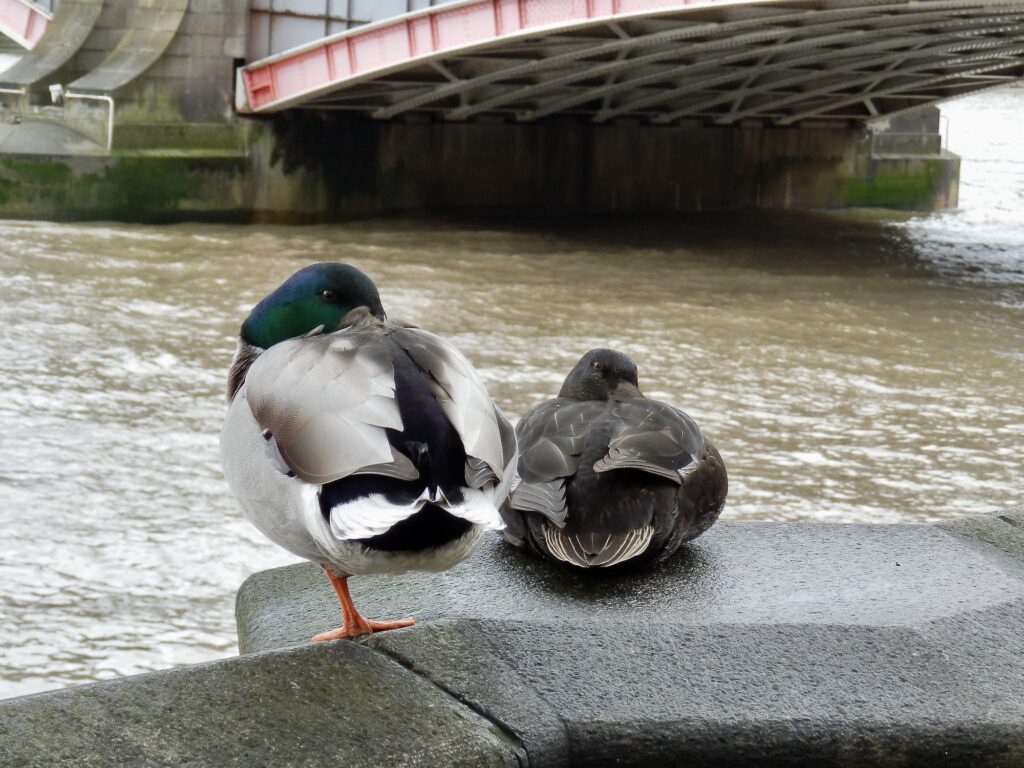
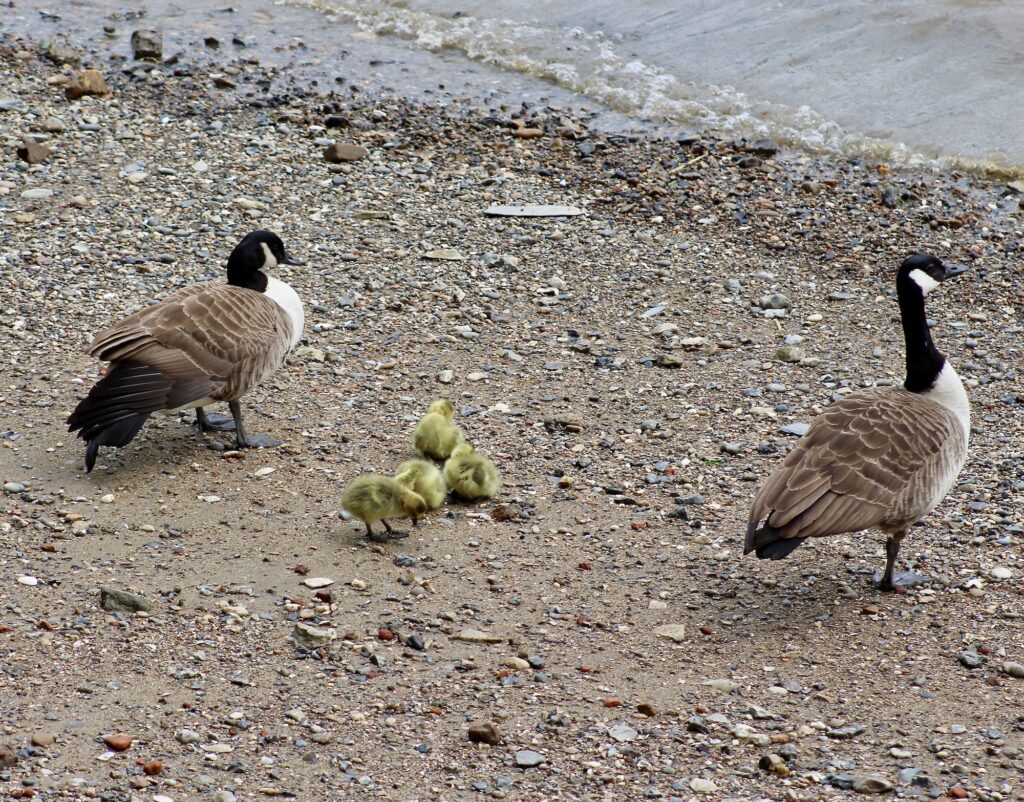
Canada geese have made fewer appearances in Victoria Tower Gardens but this pair spent some time on the foreshore one morning.
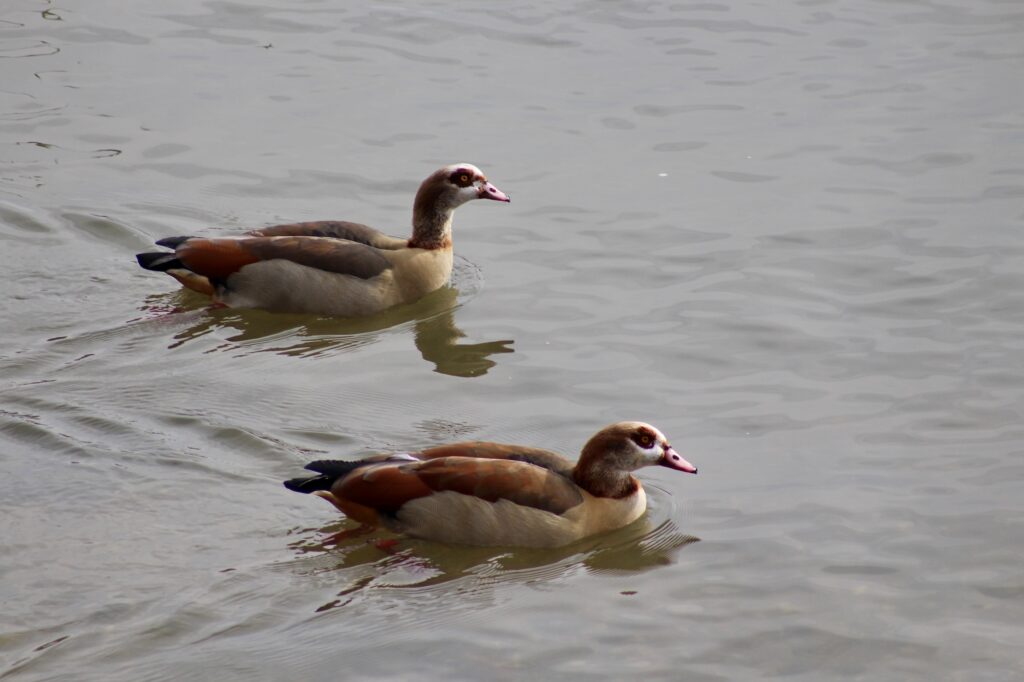
This pair of Egyptian geese seem to have been resident on or around Victoria Tower Gardens for quite a while. They feed from the shoreline and on the park lawn. They know when it’s lunchtime and do on occasions demand sandwich crusts from visitors.
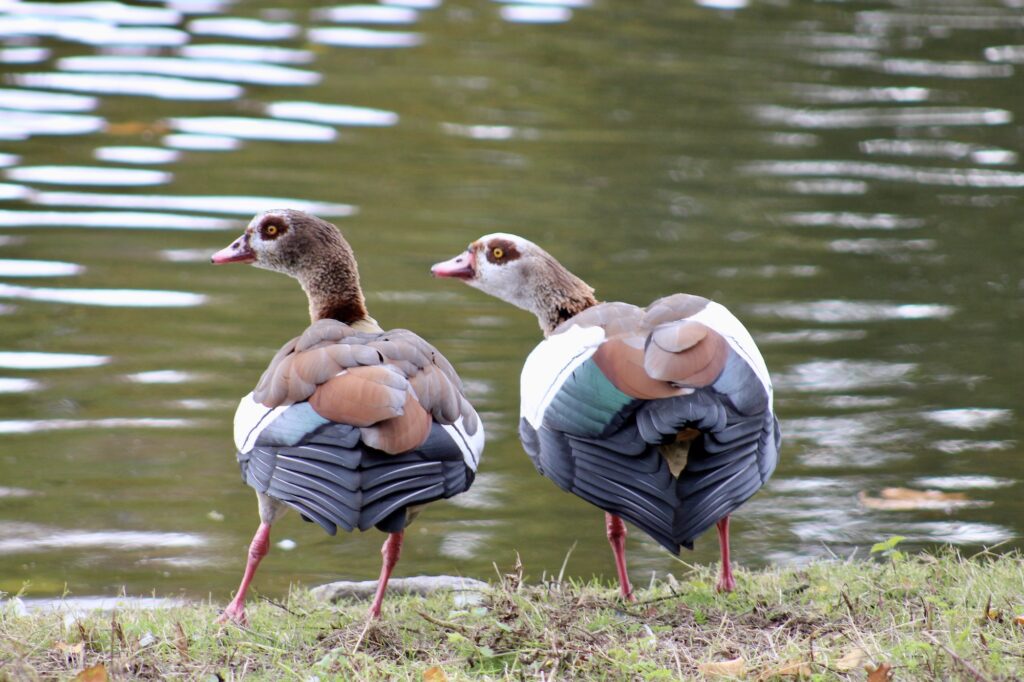
On the day I photographed this pair, they were attracted by a noise from other Egyptian geese honking further along the lake shore in St. James’s Park. The brown circles round their eyes give them a comical, quizzical look.
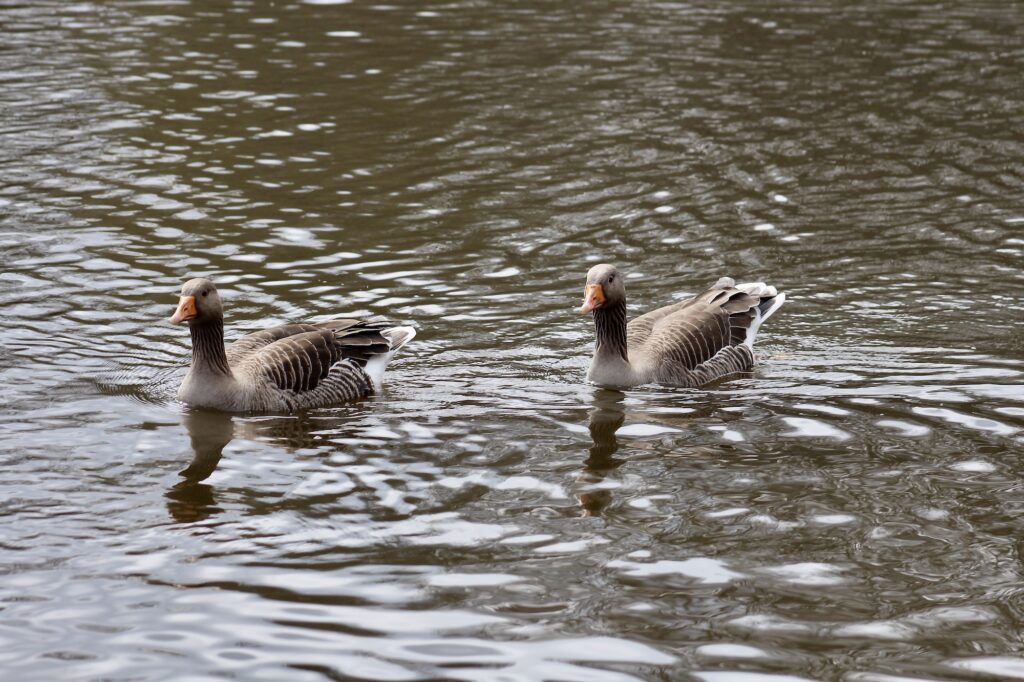
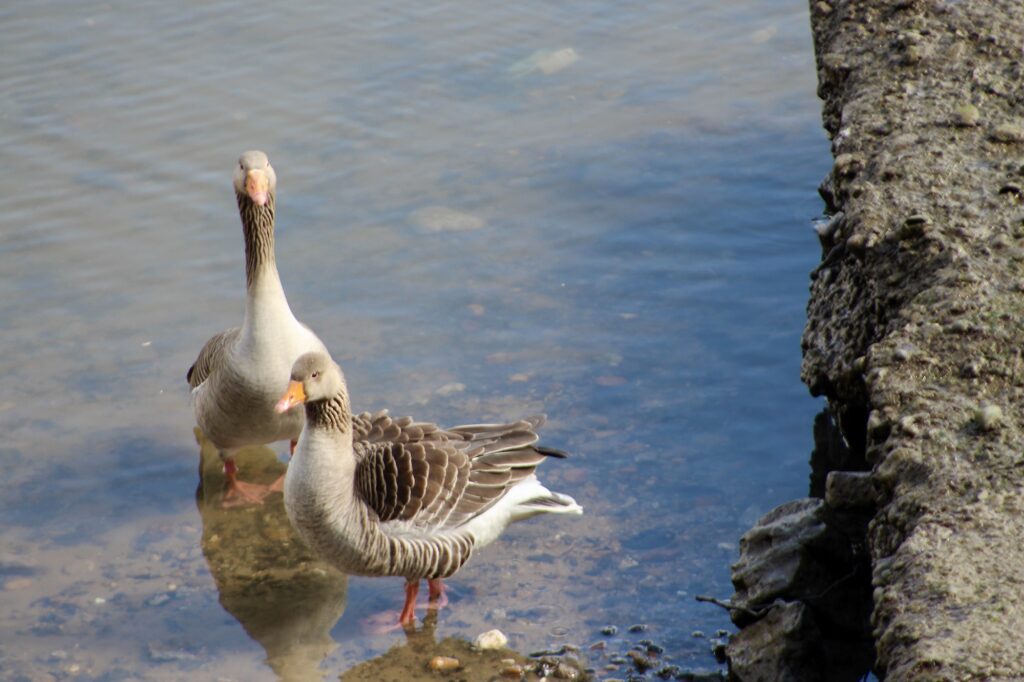
Greylag geese are ancestors of most domestic geese and are very much at home in St. James’s Park but also appear on the Thames and in Victoria Tower Gardens.
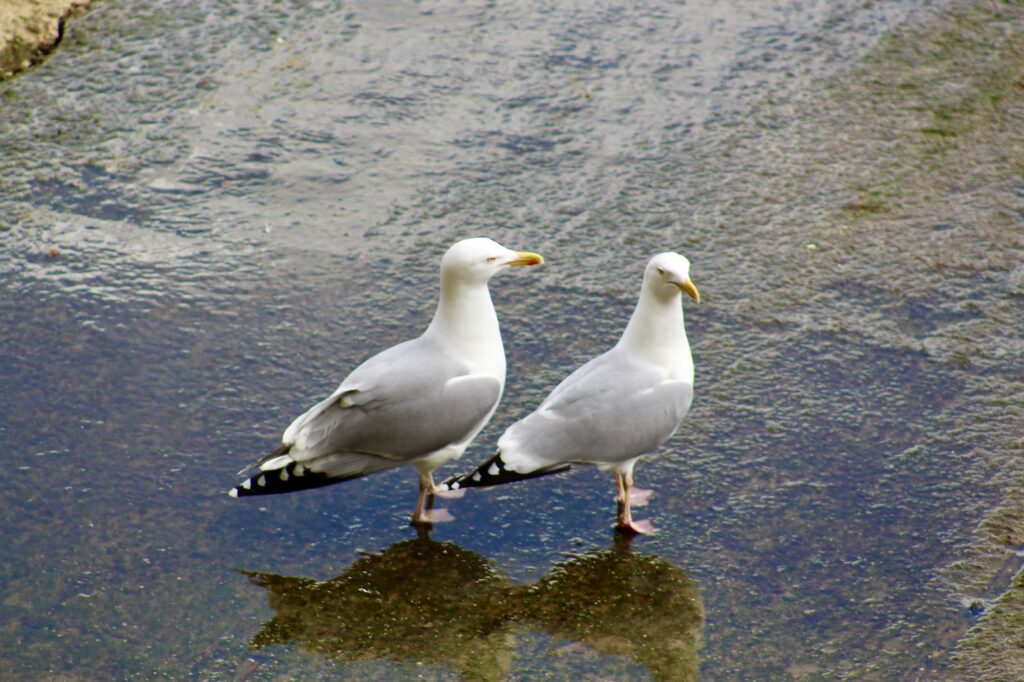
Herring gulls usually mate for life and can often be seen in pairs. Juveniles, when not annoying their parents, tend to gather in groups.
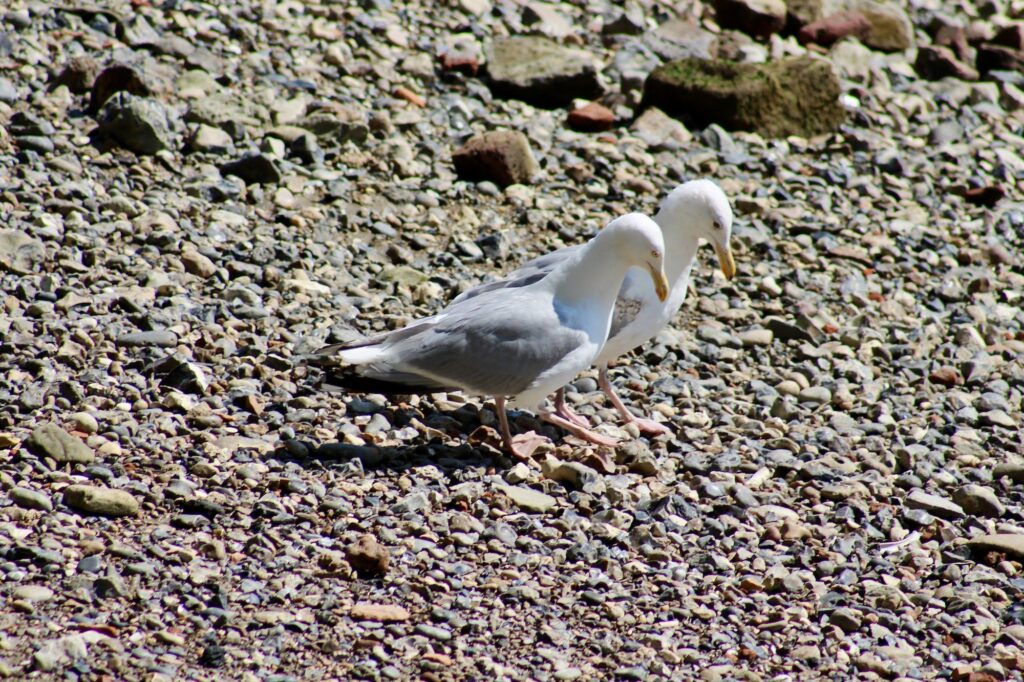
Magpies are “scavengers, predators and pest-destroyers” and here in Victoria Tower Gardens they’re ready to pick up any discarded snacks or crumbs.

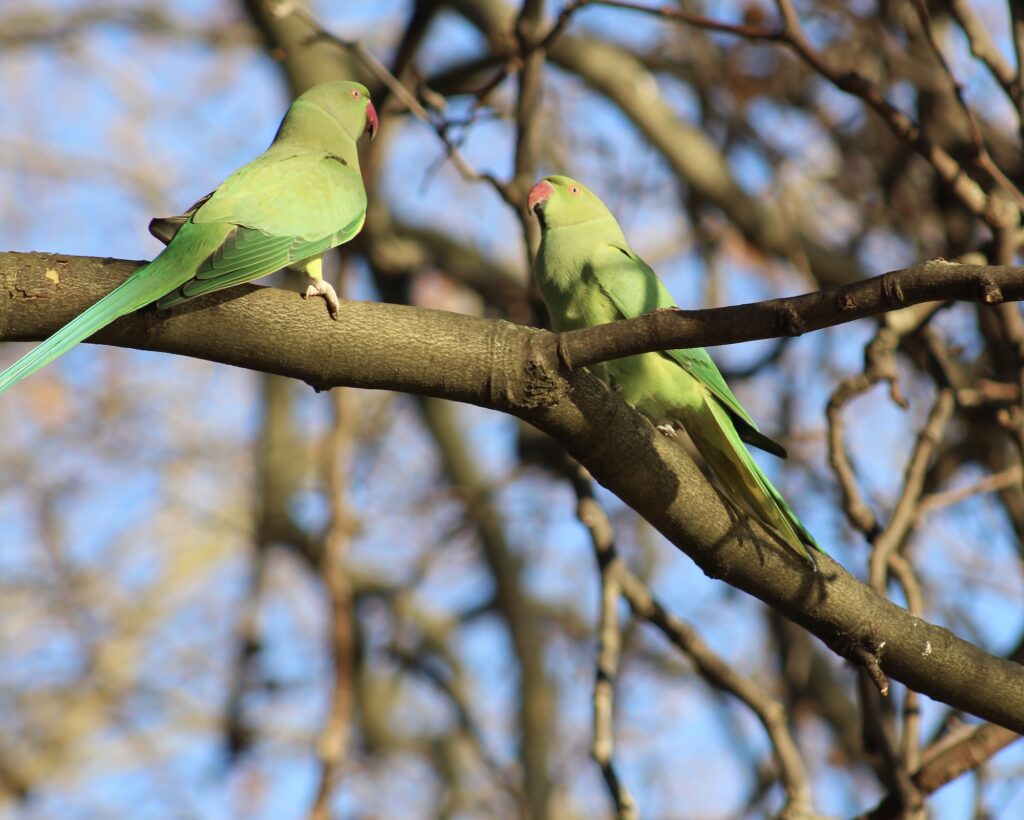
Over and above the harsh cawing of crows and chattering magpies, the screeching of ring-necked parakeets is unmistakable. However, they do have more gentle billing and cooing sounds in their lexicon too.
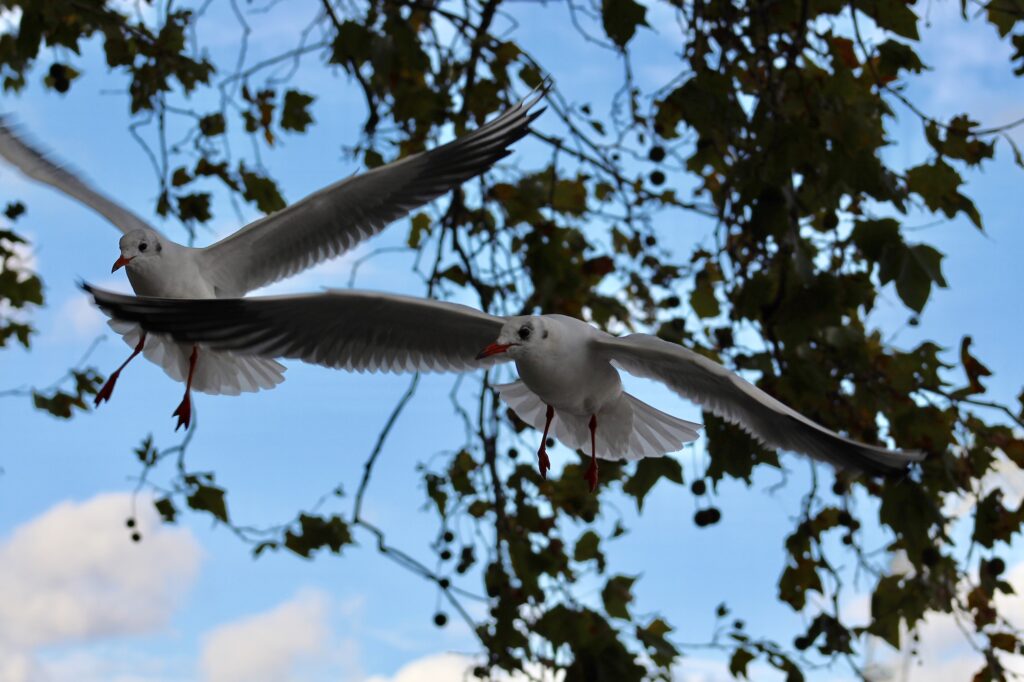
Black-headed gulls migrate south for winter, many appearing along Lambeth Reach in late summer and early autumn.
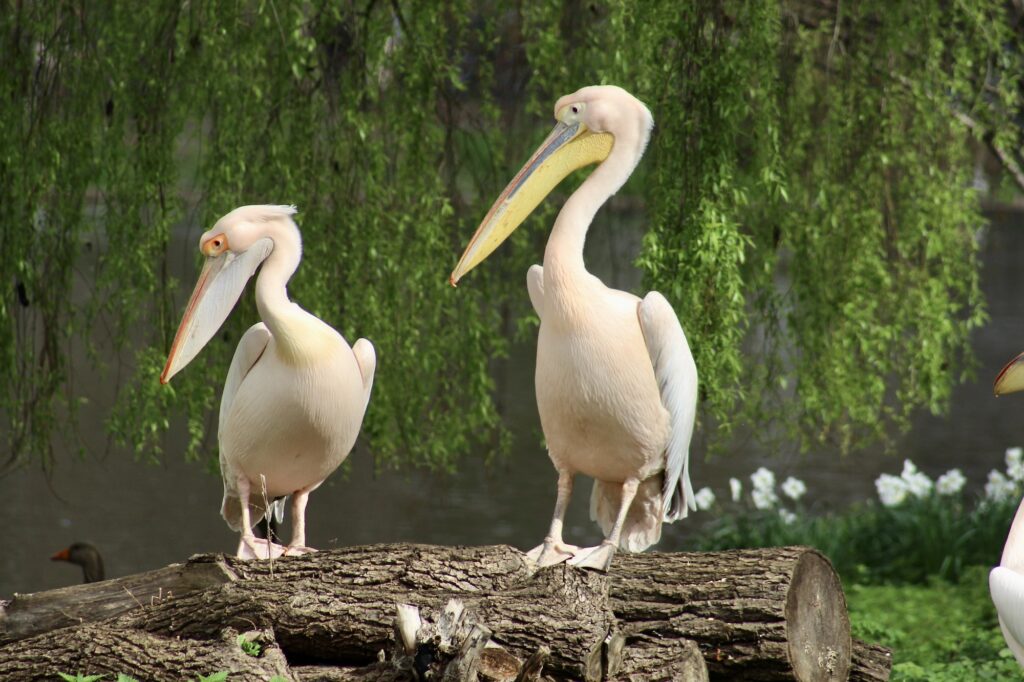
The six pelicans, stars of St. James’s Park, are called Isla, Tiffany, Gargi, Sun, Moon, and Star. At ease with visitors, when not taking refuge on their island, they often have crowds around them, at a respectful distance, on the lakeside path or the benches, which they like to occupy.

London pigeons are the focus of an interesting ten year study by Luke Taylor published in 2013. He writes: “Pigeons have managed to evolve and out compete countless other species, they have successfully migrated and colonised the entire world.” In flappy, dust-raising flocks they are overwhelming but singly, or in pairs as they are in Victoria Tower Gardens, there’s time to give them a closer look.
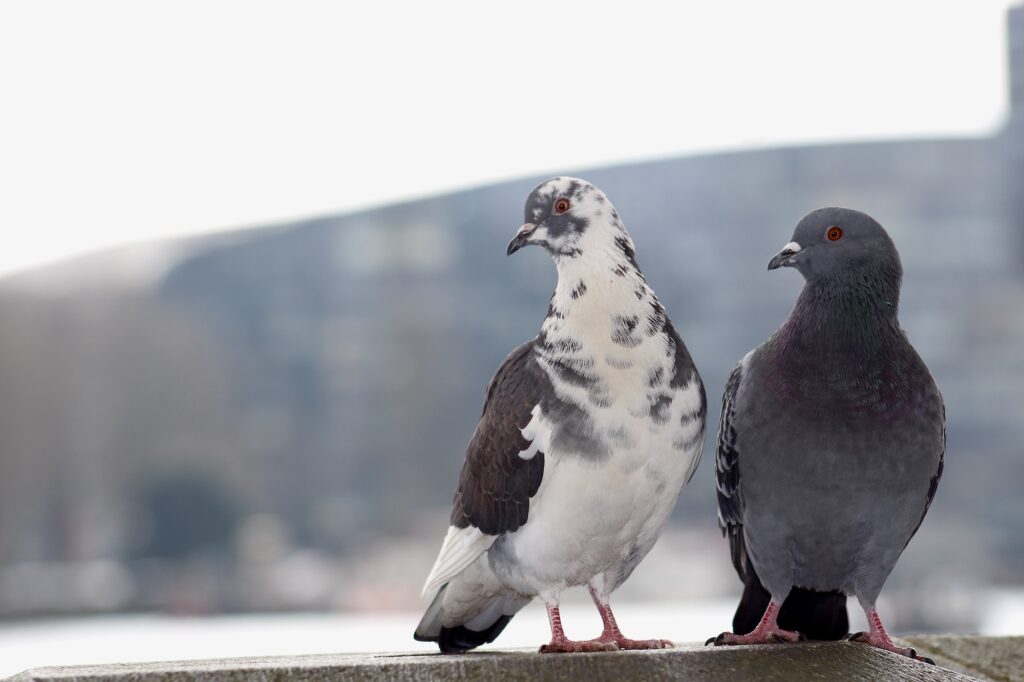
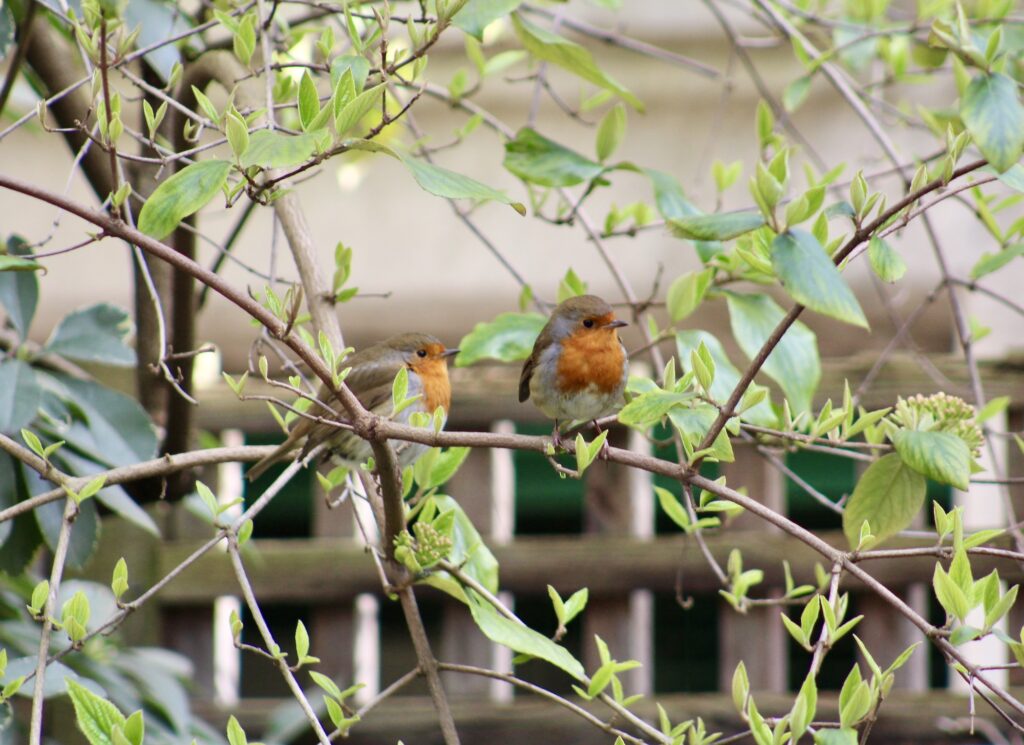
Though I’ve often seen two robins in a territorial scrap, I haven’t often seen a pair of robins as a couple. Robins are one of only a few British birds that sing throughout the year and there was some singing going on here. Warning notes…
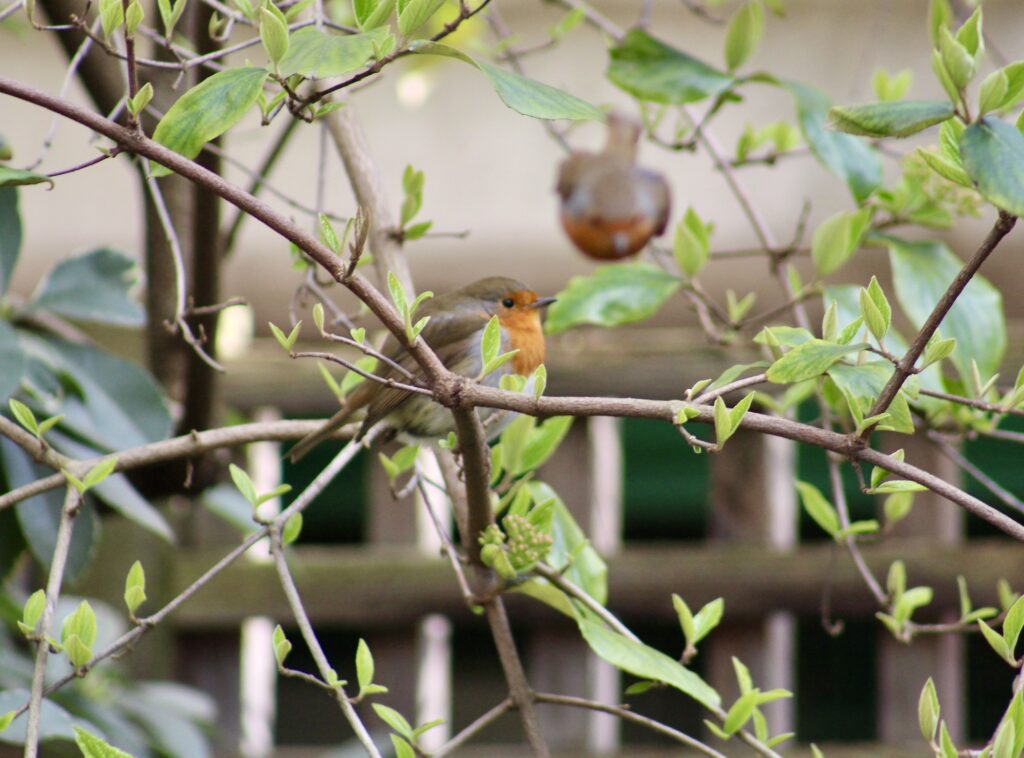
Robins are fearless in defence of their territory and their mate.
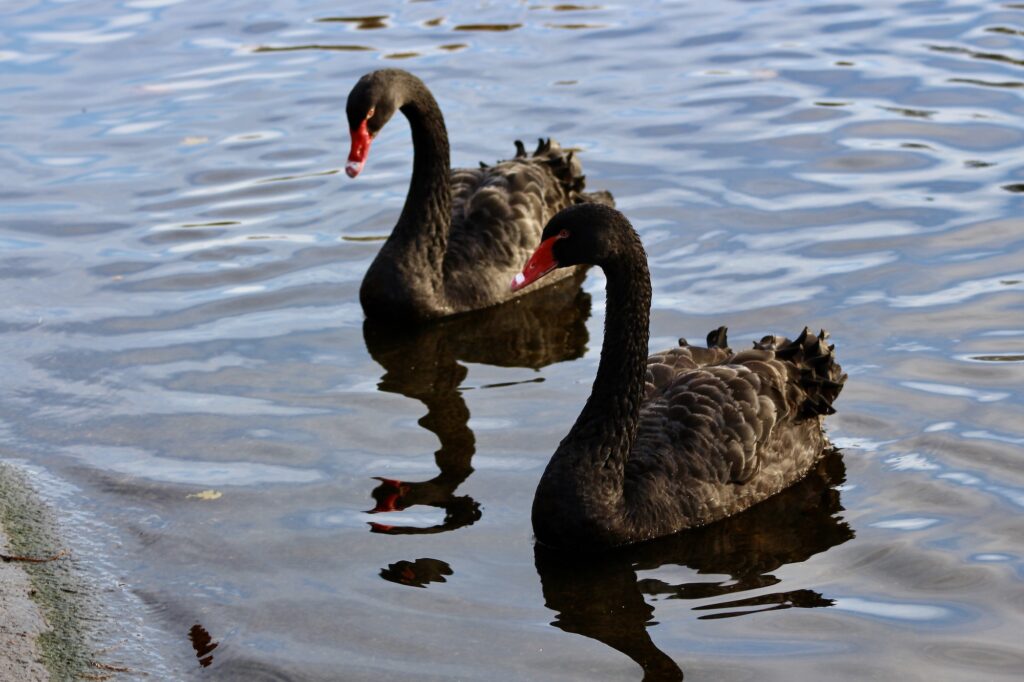
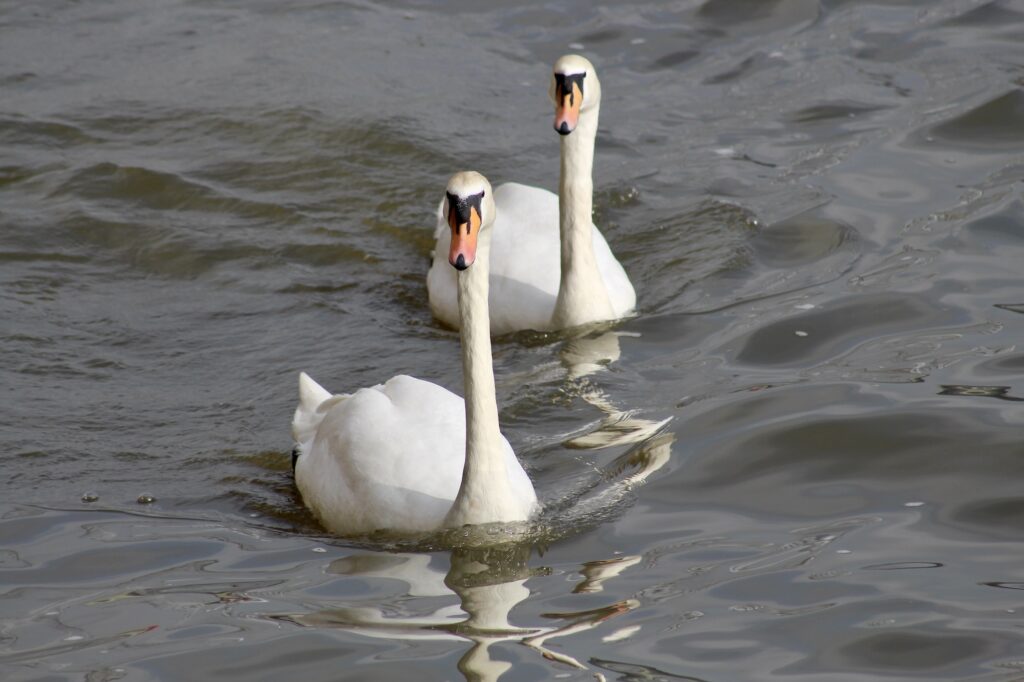
Further Information
Wildlife in St. James’s Park
Articles: “City Birds and how to watch them” by Joe Beale and Florin Feneru, from my earlier pieces:‘With the birds’ and ‘The Way Birds look at You’